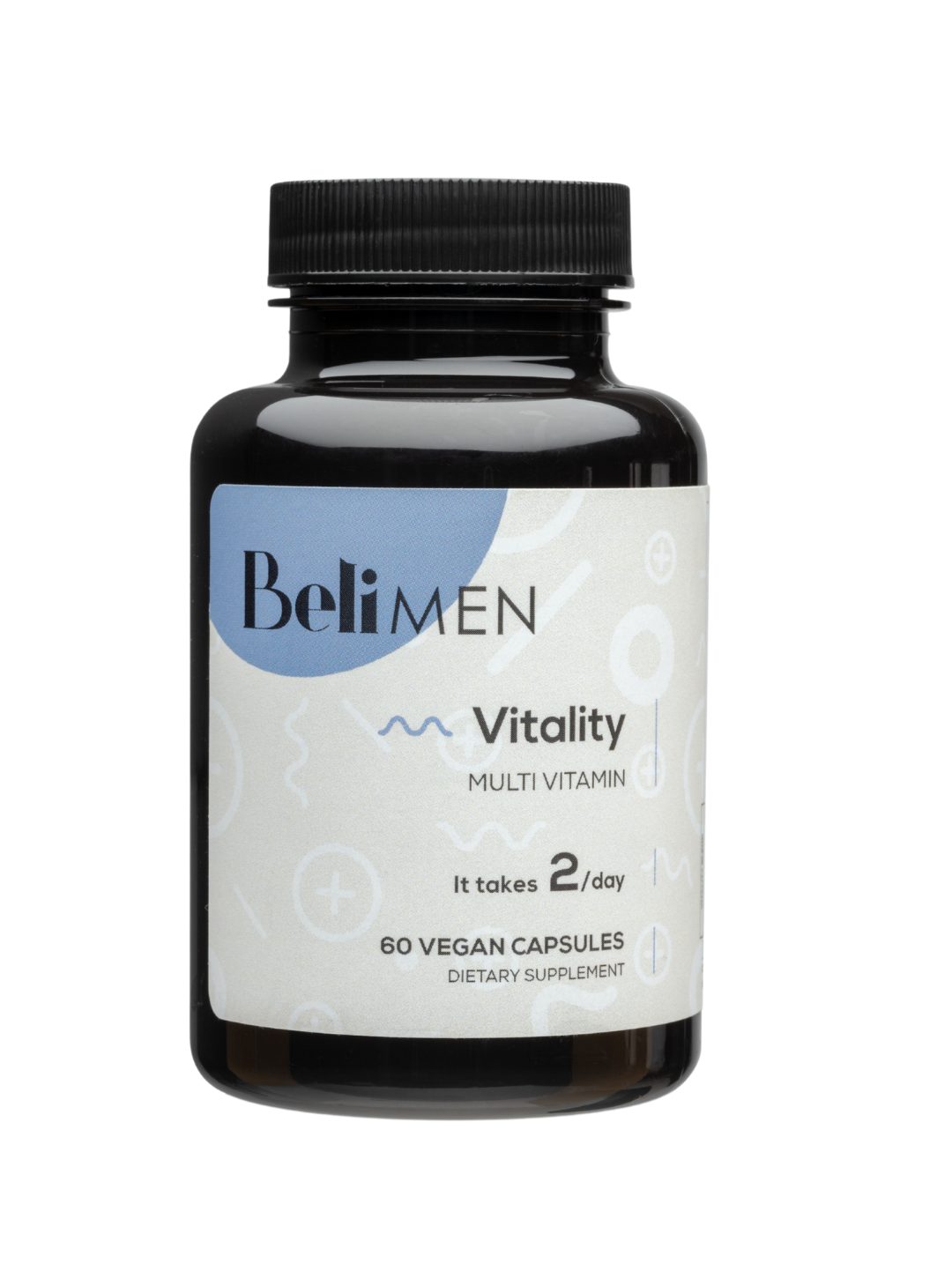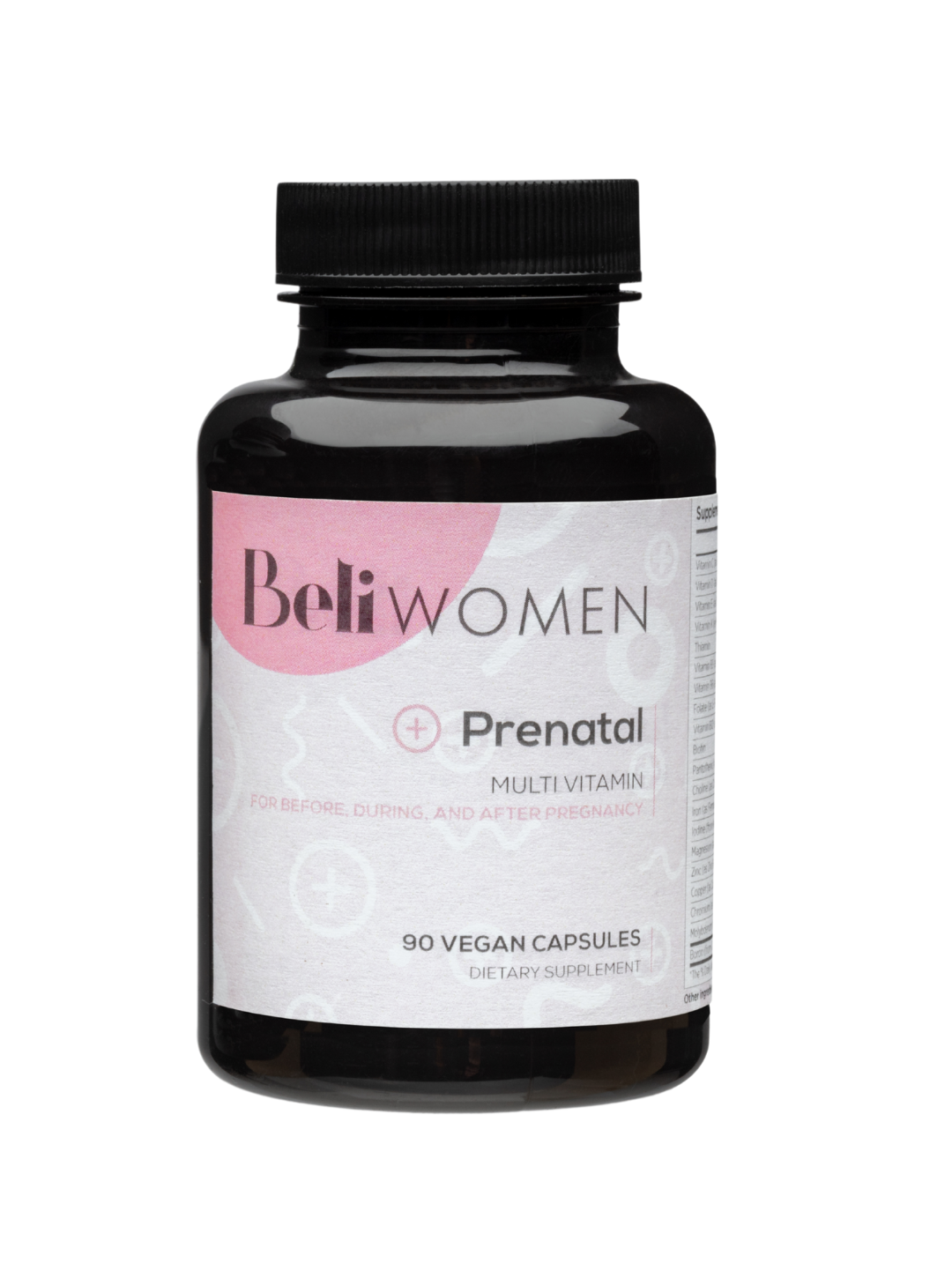If you’re planning for a baby, you may be researching everything you need to know for the best chances of conception. And we love that! Of course, so much of the baby-making equation is entirely out of our control, but nutrition is something we can absolutely manage (and it can be a game changer). Enter the prenatal vitamin — for her and for him. But for a prenatal to do its job properly, it needs a little time. Here’s why you should start taking prenatal vitamins at least three months before you hope to conceive.
Key Takeaways
- Prenatal vitamins are a huge part of preconception care.
- The preconception window is three to six months before conception, so the best time to start prenatals is as soon as you start planning for a baby.
- All the nutrients a baby needs come from mom, and starting prenatals early will help build a reserve.
- A dad-to-be’s health before conception impacts the health of the future pregnancy and baby.
- Men and women should get specialized nutritional support from prenatals that are specifically designed for their needs.
- Prenatal vitamins contain nutrients that support the systems making pregnancy possible.
Understanding the role of the prenatal vitamin
Most of us understand that a women’s prenatal vitamin is delivering key nutrients that a baby needs to grow. And if that’s the case, why start before a pregnancy? Good question! There’s a simple answer. Prenatal vitamins are actually a big part of preconception care, which also involves things like cleaning up your diet, getting regular exercise, minimizing stress, and generally doing what you can to lead a healthy lifestyle. Since you can’t predict how long it’ll take to get pregnant, and you won’t even realize you’ve conceived for at least a few weeks, it’s a good idea to hedge your bets and get started early. The preconception window is that three to six-month period before conception, so the best time to start a prenatal vitamin is when you decide you want to have a baby in the near future.
Think about it — pregnancy is work. Your body is building an entire new human, and it draws from your own nutrient stores to make that happen. Cue the hormonal roller coaster, exhaustion, moodiness, aches and pains, forgetfulness, and all the ups and downs of pregnancy, right? Your baby is going to get all the nutrients he or she needs from you, which brings up a critical point. You’re definitely going to need to shore up your own stock of nutrients to make sure you don’t become deficient once your baby is here and busy growing.
The nutrients you both need
But there’s another reason to get started on the prenatal vitamins early. Key micronutrients are linked to the same processes that drive fertility health in both men and women. From vitamins C, B6, B12, D, E and K2 to folate, zinc, chromium and choline, women can use these nutrients to support ovulation, improve egg quality, and generally boost their overall health.
Then there’s the timeline factor. While it’s true that a woman is born with all the eggs she’ll ever have, technically, those eggs are precursor cells. In order to be ready for fertilization, human eggs go through a dizzyingly complex growth process in an ovary follicle that takes around — you guessed it — three months. A steady stream of important nutrients during this growth period is important for egg quality.
On the men’s side of things, improving sperm health involves specific nutrients — think CoQ10, methylated folate, L-Carnitine, selenium, and others. And the importance of sperm health really can’t be overstated. Science tells us that a man’s health in that preconception window directly affects his sperm health and the health of their baby. Sperm health is linked to overall health, and the most common cause of problematic sperm is a lack of nutrients. In fact, one study found only one in four men has optimal sperm. See why specialized nutrition is so key?
There’s a timeline impact on this side of the baby-making equation, too. Men produce millions of sperm on the daily, but there’s a critical maturation process that takes about three months. During this time, the right nutrients can ensure that a sperm ticks all the boxes for motility, morphology, and other parameters indicating general quality. And where can a guy get those nutrients? You know it!
One for him, one for her
The best way to boost fertility health is with a prenatal that delivers the nutrients both partners need. And the best time to begin that boost is early. If a baby is the plan in the next year, that’s your cue to start taking prenatal vitamins — both of you. Men’s and women’s prenatals fulfill similar roles of supporting your fertility health, but the nutrients themselves vary. That’s the key difference between the two, and why it’s not a good idea for men to take women’s prenatal vitamins.
Beli’s formulas for him and her deliver the nutrients men and women need in appropriate amounts for the best chances of a successful conception, pregnancy, and baby. Our science-aligned prenatals are made with everything you need, and nothing you don’t. And while it’s true that getting pregnant isn’t as easy as downing a pill, it’s also true that the vitamins in a quality prenatal vitamin — like Beli — support your preconception and overall health, and the sooner you get started, the better. Bottom line? If trying for a baby is in your near future, you should start taking prenatal vitamins now.
Any statement made on Belibaby.com has not been evaluated by the Food and Drug Administration. This product is not intended to diagnose, treat, cure, or prevent any disease. We recommend consulting with your medical provider before starting any new supplement.
This article is for informational purposes only, even if and regardless of whether it features the advice of physicians and medical practitioners. This article is not, nor is it intended to be, a substitute for professional medical advice, diagnosis, or treatment and should never be relied upon for specific medical advice. The views expressed in this article are the views of the expert and do not necessarily represent the views of Beli.




